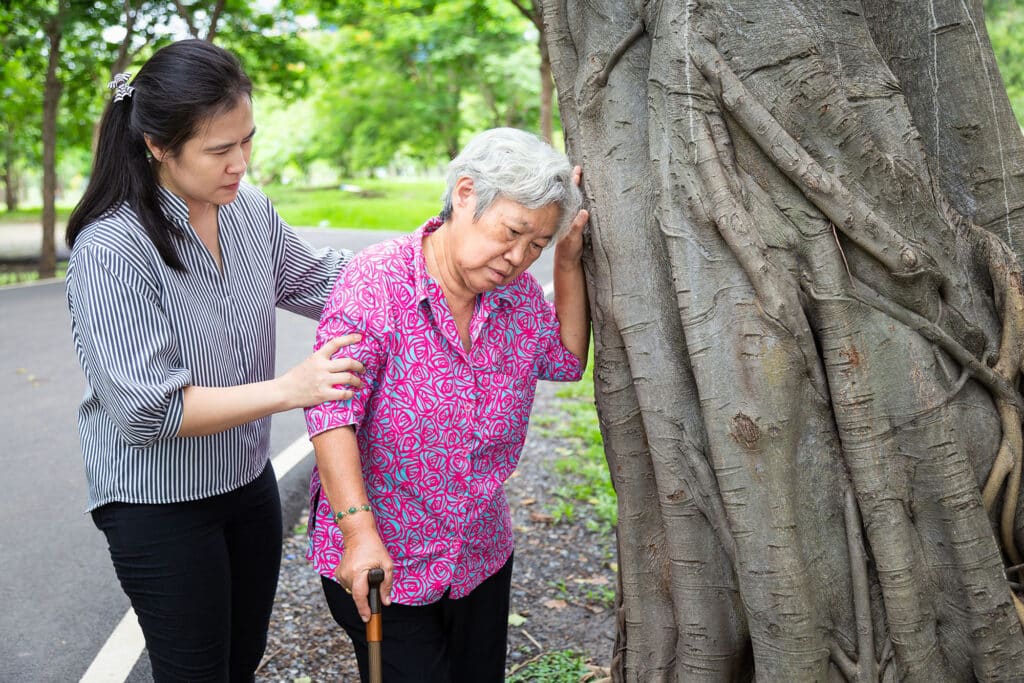Blood pressure is important for overall health, particularly in seniors. Sudden blood pressure rises, known as hypertensive episodes, can be frightening and hazardous if not recognized and controlled properly. Understanding this, it’s easy to see why helping seniors understand the causes, risks, and coping methods for these increases is essential to their well-being—and having home care assistance is a great way to achieve this.
Table of Contents
ToggleUnderstanding Blood Pressure Spikes
A blood pressure spike happens when measurements abruptly rise to an abnormally high level, even if only briefly. For example, a normal measurement might be 120/80 mmHg, but during a spike, it could rise to 160/100 mmHg or higher. Physical, emotional, or environmental factors might cause these episodes.
Why Seniors Are More Prone to Spikes
Seniors may have underlying diseases or lifestyle factors that lead to blood pressure spikes. With home care assistance and support from their medical team, they can monitor this situation to identify the underlying cause. Some common causes might be:
- Arterial Stiffness: As blood arteries age, they lose their flexibility, making it more difficult for the body to regulate blood pressure.
- Chronic Conditions: Chronic conditions such as diabetes, renal disease, and heart disease can all contribute to blood pressure variability.
- Medications: Some pain relievers, cold remedies, and even herbal supplements can elevate blood pressure.
- Emotional Stress: Anxiety and stress are common causes of hypertension.
- Dietary Factors: Consuming sodium-rich foods or stimulants such as caffeine might cause blood pressure spikes.
Helping Seniors Understand the Risks
Educating seniors on the risks of unmanaged blood pressure is essential. Seniors can gain education through their medical team, but those with home care assistance can also review resources and gain the confidence they need to talk with the medical team when they have concerns. Some of the risks to understand include the following:
- Stroke and Heart Attack: Sudden increases put a strain on the heart and blood vessels, raising the risk of cardiovascular problems.
- Kidney Damage: Chronic high blood pressure might compromise kidney function.
- Cognitive Decline: Studies have linked fluctuating blood pressure to an increased risk of dementia.
Managing the Triggers
Along with knowing the risks, seniors should also have knowledge of how to manage the triggers, which could include:
- Stress Management: Relaxation techniques such as deep breathing and mild yoga can help keep blood pressure consistent.
- Healthy Diet: Seniors should focus on limiting salt and avoiding coffee.
- Physical Activity: Consistent exercise can improve cardiovascular health.
- Medication Awareness: Seniors should be aware of the side effects of over-the-counter or prescription medicines and discuss their concerns with the medical team.
Understanding What to Do During a Spike
Finally, seniors should know what to do during a spike to help keep themselves safe. With home care assistance, they can be prompted to take the following actions if their blood pressure starts to rise above normal.
- Rest and Relax: Seniors should find a quiet place to sit and practice deep breathing.
- Check Medications: It’s essential to ensure that prescribed antihypertensives are taken correctly.
- Hydration: Drinking water can help, especially if they’re dehydrated.
- Get Help: If seniors have severe symptoms such as chest pain, disorientation, or shortness of breath, emergency services should be contacted right away.
By breaking down complex information about blood pressure and spikes into small, understandable chunks, seniors with home care assistance can better understand this issue and more effectively manage their health.
Providing exceptional Home Care Assistance in Arlington, VA, for seniors and families in the Northern Virginia area, including Arlington, Alexandria, McLean, Reston, Burke, Ashburn, Centreville, Springfield, Manassas, and Oakton. Call today to speak with our caring staff: (703) 272-8838.
Sources:
- https://www.nia.nih.gov/health/high-blood-pressure/high-blood-pressure-and-older-adults
- https://www.hopkinsmedicine.org/health/conditions-and-diseases/high-blood-pressure-hypertension
- https://www.ncoa.org/article/what-is-hypertension-a-straightforward-guide-for-older-adults/
- https://greatergoodhealth.com/patients/managing-blood-pressure-what-seniors-need-to-know/
- How 24-Hour Home Care Helps Enhance the Health and Well-Being of Seniors With Chronic Conditions - June 6, 2025
- What Are Some Surprising Early Signs of Dementia? - May 22, 2025
- Training of the Month: Lymphedema - May 15, 2025




